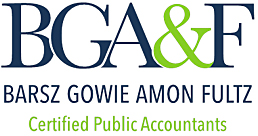Navigating tax season preparation requires strategic planning and meticulous organization. Below are some tips and tricks to streamline your tax filing process, ensuring a thorough and secure approach.
Tax Season Preparation: For Individuals
1. Consolidate and Organize Tax Documents Early
Gather all relevant tax documents such as W-2s, 1099s, investment income statements, and deduction records. Organizing these documents in one go and categorizing them based on income, deductions, and credits can significantly enhance efficiency, reducing the back-and-forth with your accountant and minimizing the risk of overlooking important information.
2. Utilize Last Year’s Return for Comprehensive Preparation
Reviewing your previous year’s tax return can provide a comprehensive overview of the documents and information you might need for the current year. This retrospective glance can serve as a valuable checklist, particularly for identifying recurring deductions, income sources, and any carryover amounts that could impact your current tax situation.
3. Maximize the Utility of Client Organizers
Client organizers, provided by your accountant, are invaluable tools designed to capture all necessary information for your tax filing. These organizers often include detailed questionnaires and checklists tailored to your tax situation, ensuring no critical piece of information or document is missed. Engaging with this tool thoroughly can streamline the preparation process and facilitate a more accurate and efficient filing.
4. Maintain Meticulous Records of Deductions
For deductions such as charitable contributions, educational expenses, medical bills, and business-related costs, maintaining detailed records is essential. This includes receipts, bank statements, and written acknowledgments for donations. Precise documentation substantiates your claims and can be pivotal in maximizing your deductions while ensuring compliance with IRS guidelines.
5. Adopt Secure Methods for Transmitting Sensitive Information
In an era where digital security is paramount, ensure the safe transmission of your sensitive financial documents to your tax preparer. Utilize encrypted emails, secure client portals, or encrypted storage devices for physical hand-off. These secure methods protect your personal and financial information from unauthorized access and potential cyber threats.
Tax Season Preparation: For Business Owners
1. Utilize Accounting Software
Leveraging advanced accounting software such as QuickBooks Online can significantly enhance the management and organization of your financial records. Their programs offer a comprehensive suite of features designed to streamline every aspect of financial tracking, from income and expenses to invoicing, payroll, and tax preparation.
2. Consider a Dedicated Bookkeeper for Enhanced Financial Management
Investing in a dedicated bookkeeper can significantly streamline your financial management, ensuring that all your transactions are meticulously tracked and recorded.
By keeping your financial data up-to-date and thoroughly categorized, a bookkeeper helps identify tax-deductible expenses, thereby potentially reducing your tax liability.
They can also detect any discrepancies or inefficiencies within your financial operations early, offering opportunities for corrective measures before they escalate into more significant issues. This level of financial oversight can be particularly beneficial in optimizing operational costs and enhancing profitability.
Given the complexity and dynamic nature of tax laws, a bookkeeper can also liaise with your tax advisor, ensuring that all financial data aligns with current tax requirements and strategies. This collaboration is essential for maintaining financial health and tax compliance, making a dedicated bookkeeper an invaluable asset to your business team.
3. Maintain Accurate Records
It’s essential not only to maintain accurate records but also to understand the distinction between financial and non-financial documents. Financial records encompass all monetary transactions, including invoices and receipts, directly impacting your financial statements and tax filings.
On the other hand, non-financial records, though not directly related to financial transactions, play a significant role in substantiating your claims and deductions. These include mileage logs, which can support vehicle-related deductions, and appointment calendars, proving the business nature of trips and meetings. Keeping both types of records organized and accessible can greatly facilitate your tax preparation process and ensure you’re maximizing potential deductions.
4. Stay Informed and Consult Professionals
Keep up with tax law changes and consult with tax professionals to maximize benefits and ensure compliance with current laws. To stay current, consider the following resources: the Internal Revenue Service (IRS) website for official updates, tax professional associations like the American Institute of Certified Public Accountants (AICPA) for expert insights, blogs from reputable tax software providers, financial news outlets for broader legislative changes, and government publications for in-depth analysis of new tax laws. Regularly engaging with a trusted tax professional can also provide personalized advice tailored to your unique situation, ensuring you’re well-informed about the latest developments that could impact your taxes.
5. Review Business Structure and Tax Implications
It’s crucial for business owners to review their business structure periodically—whether it’s an LLC, S-Corp, sole proprietorship, or partnership—and fully understand the tax implications associated with each. These structures differ not only in terms of liability and management but also in how they are taxed by federal and state governments.
Each structure has unique tax obligations and potential benefits. For instance, an S-Corporation might offer savings on self-employment taxes, while an LLC could provide more flexibility in profit distribution. Moreover, changes in tax laws, such as updates to pass-through entity taxation or corporate tax rates, can affect which structure is most advantageous for your business.
Changing your business structure could unlock significant tax savings and affect your liability, operational flexibility, and profit-sharing arrangements. Before making any changes, it’s advisable to consult with tax professionals and legal advisors who can provide personalized advice based on the latest tax laws and your specific business circumstances. This strategic assessment ensures that your business not only remains compliant but also leverages the most beneficial tax treatment available.
Tax Season Preparation: General Tips for All Taxpayers
1. Plan for Tax Payments
Proactive preparation is key in managing your tax obligations, especially if you anticipate owing taxes at the end of the fiscal year. Starting this process early not only helps in accurately estimating your tax liability but also in setting aside sufficient funds to cover this amount, thereby avoiding any unwelcome surprises as the deadline approaches. A tax professional can help you estimate your tax liability and avoid any surprises at tax time.
2. Check Your Filing Status
Review your filing status to ensure you’re using the most beneficial one for your situation, as it can significantly impact your tax liabilities and benefits. Additionally, be sure to update any changes in dependent status, such as the birth of a child, adoption, or changes in custody arrangements. These changes can affect your eligibility for various credits and deductions, including the Child Tax Credit and Earned Income Tax Credit, potentially leading to substantial tax savings.
3. Beware of Scams
In today’s digital age, staying vigilant against tax scams is more crucial than ever. Taxpayers should be acutely aware that these fraudulent activities can take many forms, from phishing emails and suspicious text messages to deceptive phone calls and social media messages. It’s essential to understand that the IRS adheres to strict communication protocols and will never initiate contact with taxpayers via email, text messages, or social media channels to request personal or financial information.
4. File on Time or File for an Extension
Avoid penalties by ensuring you file your taxes or request an extension by the deadline. It’s crucial to understand that while an extension grants you additional time to submit your return, it does not extend the deadline for any taxes owed. If you anticipate owing taxes, it’s important to estimate and pay these by the original due date to avoid potential penalties and interest charges. This distinction is key to managing your tax obligations effectively, even when leveraging an extension.
5. Stay Organized and Calm
Organizing your documents early and maintaining a calm, planned approach to tax time is crucial. This proactive mindset not only streamlines the filing process but also minimizes errors and oversights. Establish a systematic method for tracking and storing important tax-related documents throughout the year, such as income statements, receipts for deductible expenses, and investment records. This organization lays the groundwork for a smoother tax preparation experience.
Conclusion
Thorough preparation for tax season is indispensable for both individual taxpayers and business owners alike. By methodically organizing documents, referencing the previous year’s return, utilizing organizational tools, and maintaining the confidentiality of sensitive information, you can approach tax season with a sense of preparedness and assurance. Beyond the practical steps of preparation, adopting a mindset geared towards early and mindful engagement with your tax responsibilities transforms a potentially stressful period into an opportunity for financial review and strategic planning.




